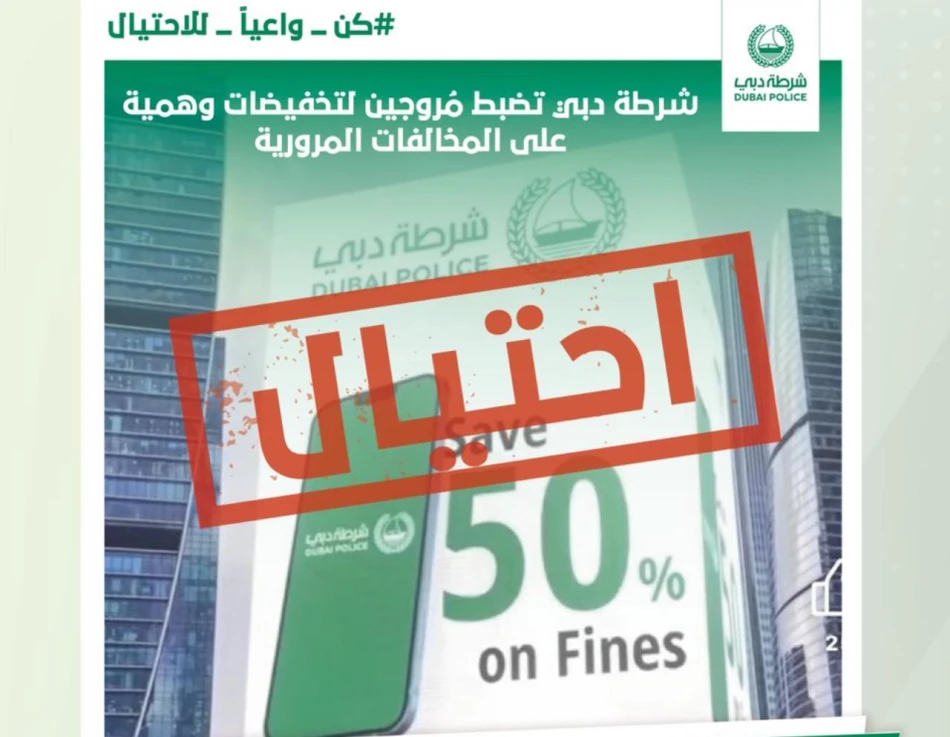
Dubai Police Busts Fake Traffic Violation Discount Scammers
Dubai Police Crack Down on Traffic Fine "Discount" Scam Using Stolen Credit Cards
Dubai Police have arrested a criminal network that exploited social media to offer fake traffic fine discounts of 30-70%, using stolen credit card data to pay victims' fines while pocketing cash payments. The sophisticated scheme highlights growing concerns about financial fraud in the UAE's digital economy and raises questions about consumer awareness of official payment channels.
The Mechanics of a Double-Edged Crime
The fraud operation combined credit card theft with financial deception in a carefully orchestrated process. Criminals first acquired stolen credit card information through phishing schemes or by purchasing data from underground sources. They then used social media platforms to advertise substantial discounts on traffic violations.
When victims responded to these offers, the scammers would meet them in person and collect cash payments equivalent to half the fine amount. Using the stolen credit card data, they would then pay the full fine through official channels. Once the payment was confirmed in the system, victims believed they had received legitimate discounts while unknowingly participating in credit card fraud.
Victims May Face Legal Consequences
Dubai Police emphasized that this constitutes a dual crime involving both data theft and financial fraud. Significantly, victims who knowingly participated despite understanding the illegitimate nature of the scheme could face charges as accomplices, adding legal risk to what appeared to be financial savings.
UAE's Broader Anti-Fraud Campaign
This crackdown reflects the UAE's intensified focus on digital security as the country positions itself as a global financial hub. Dubai's approach mirrors similar efforts in Singapore and other international financial centers, where authorities increasingly target sophisticated fraud schemes that exploit digital payment systems.
The case also demonstrates how criminals adapt traditional fraud methods to modern digital infrastructure, using legitimate government payment portals as unwitting tools in their schemes.
Market and Consumer Implications
For financial institutions operating in the UAE, this case underscores ongoing vulnerabilities in credit card security and the need for enhanced fraud detection systems. The incident may prompt stricter verification requirements for high-value government payments and increased monitoring of unusual transaction patterns.
The scheme's success also reveals gaps in public awareness about official payment channels, suggesting need for enhanced consumer education about government services and fraud prevention.
Official Response and Prevention Measures
Dubai Police stressed that all traffic fine payments must go through official channels designated by relevant authorities. Any offers outside these frameworks constitute violations punishable by law.
Authorities urged residents to report similar attempts through the "Police Eye" service or the 901 call center, emphasizing continued efforts to combat all forms of crime while strengthening digital and economic security across the emirate.
The arrests signal Dubai's zero-tolerance approach to financial crimes that could undermine its reputation as a secure business environment, particularly as the UAE continues attracting international investment and positioning itself as a regional fintech hub.
Most Viewed News

 Sara Khaled
Sara Khaled






